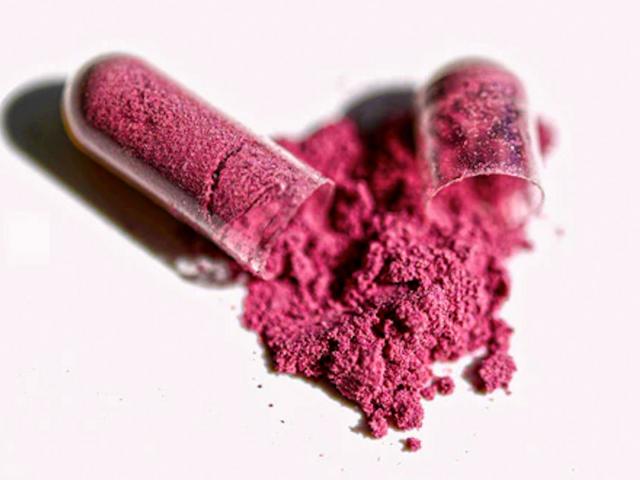How Israeli Technology is Extracting the ‘Goodness’ Out of God’s Plants and Upscaling it for Consumption
JERUSALEM, Israel – An Israeli company is using a “revolutionary“ process to extract the greatest benefits from plants and produce a product that avoids calorie intake and other less desirable components.
“When God gave us the plants on day three – when he created the world – God gave us 500,000 plants that all themselves carried critical, active, medicinal compounds that are so important for the human body,” said Ilan Sobel, CEO of BioHarvest Sciences.
And by trying to scientifically get the best of what plants offer, Sobel says his company has reached an amazing breakthrough.
“We at BioHarvest Sciences have developed a platform technology that's able to take any essential, active medicinal compound from the plant and we grow these active medicinal compounds in cells in a way where we are able to maintain the original structural composition of these specific medicinal compounds,” Sobel told CBN News.
Using a process shrouded in secrecy, the cells are developed in bioreactors for three weeks and then harvested.
“We call the technology bio plant solicitation, and this technology helps us to grow cells in liquid media to mimic nature, to take all the benefits of nature and to power it, to make it better,” said Malkit Azachi, Vice President of Research and Development at BioHarvest Sciences.
“We are left with an amazingly soluble and bio-available end-product with this unique powder, which ultimately contains all the essential polyphenols from a plant or all the essential antioxidants from a specific plant,” Sobel explained.
Food Science Professor Zohar Kerem of the Hebrew University says that while university labs can produce what a plant is already producing, BioHarvest goes beyond that.
“The technology of BioHarvest is revolutionary in the sense that they know today how to take productive organs of a plant – might it be the fruits, might it be the flowers, the leaves – and they can grow these in culture and make them produce the expected amount of the compound that they are looking for with all the other compounds that come along,” Kerem explained to CBN News.
And that’s not all.
“The second is the upscale from a petri dish or a little flask in a lab to industrial production and their technology allows [to] do the upscaling rapidly and in a safe way and I’ve analyzed their products and they are what they say they are,” explained Kerem, who specializes in analytical chemistry.
The first product, Vinia, is made from skin, flesh, and seed cells of the red grape. Scientists got the idea from what’s called the French paradox.

“The French paradox talks about the fact that French people, generally have a very fatty diet – lots of pate’, lots of liver, lots of cheeses – but they have very good cardiovascular health,” Sobel explained.
“The scientists realized it was from moderate consumption of red wine. They realized it was from a combination of polyphenols from the red grape. There was one king polyphenol called Piceid Resveratrol.
According to Sobel, each Vinia capsule contains the same amount of piceid resveratrol as a full bottle of red wine or 1,000 grapes but without the sugar, the alcohol, or the calories.
“Together working with other polyphenols, like catechin, quercetin, tannins, and anthocyanins, they work together in order to provide this really excellent cardiovascular health,” he said.
Using this as a map, Azachi compared a healthy cardiovascular system to more than 60,000 miles of highway without traffic jams, construction zones, or detours.
“Everything is passing smoothly,” Azachi told CBN News. “In the center of [a] healthy circulation system, you will find [a] healthy heart. And this heart keeps the blood pumping and the energy flowing because the oxygen [reaches] to all the organs in our body.”
Sobel says clinical trials show that Vinia helped increase the dilation of arteries by at least 70 percent in each participant in just three months and he says they are getting great reviews.
***Please sign up for CBN Newsletters and download the CBN News app to ensure you keep receiving the latest news from a distinctly Christian perspective.***
“Vinia is driving a transformational change in people's lives, whether it's increased physical energy from blood flow, more vascularity, and being able to work out longer in the gym, or literally having the mental alertness to not have to worry about an afternoon sleep,” he said.
According to Sobel, there are environmental benefits as well.
“In one year, we're able to produce the equivalent of roughly 250,000 square meters of land. This really allows us to be able to bring the gift of mother nature to people in a way which, literally utilizes a fraction of the amount of land,” he said.
“When it comes to water – all of our water is biodegradable. So, everything gets recycled back into the water system,” he added.
They’re also encouraging the pharmaceutical industry to go back to its plant-based roots.
“The reason why our technology is so unique in this area and provides a critical solution for pharmaceutical companies in the future is that we can go back to the plant and take the critical, essential, active medicinal compounds from the plant, and we're able to bring the consistency that the pharmaceutical companies need,” Sobel explained.
And because BioHarvest can control the quality and composition, it can still work with the plant and get the whole effect of the plant “in a way that is very much similar to the pharmaceutical industry, explained Kerem.
Kerem says that makes the pharmaceutical industry think twice and question whether or not they are doing the best they can.
The grape is one of the seven species of the Bible listed in .
Two other plant products from that list are currently in development: Olivia, from olives, designed to maintain normal cholesterol levels, and Pomia from pomegranates for anti-inflammatory support.






